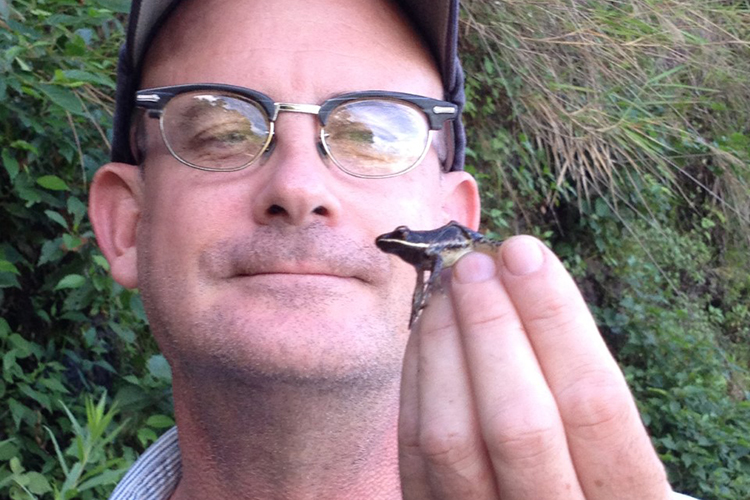
Samford University’s Department of Biological and Environmental Sciences will host Joseph Mendelson for its annual Howell-McLaughlin Lecture, on campus and online, March 15. Mendelson is Director of Research at Zoo Atlanta and adjunct professor of biology at Georgia Tech University. He also is past president of the Society for the Study of Amphibians and Reptiles.
Mendelson has studied herpetology for more than 30 years, concentrating mostly on Mexico, Central America and the southwestern U.S. Most of his work has involved evolutionary studies and taxonomy–including the description of more than 40 new species. In addition to fieldwork, he is involved in development conservation programs and policies related to global amphibian extinctions, and pursues lab projects involving behavior, biomechanics and traditional descriptive morphology. He has published more than 125 technical papers in peer-reviewed journals, including Science, Nature, Biology Letters, Proceedings of the National Academy of Sciences and Journal of Herpetology.
Mendelson’s lecture at Samford–Snakes, Sand & Robots: Model System of Reciprocal Illumination–is informed by his recent research on snake locomotion in the context of both functional anatomy and the physics of granular media, focused on such iconic sand-specialist species as the sidewinder and the shovel-nosed snake.
The Howell-McLaughlin Lecture honors emerita Samford biology professors William "Mike" Howell and Ellen McLaughlin, and is part of the department’s spring lecture series. All of the events are free of charge and open to the public.
Howell-McLaughlin Lecture–Snakes, Sand & Robots: Model System of Reciprocal IlluminationJoseph Mendelson
March 15, 3:30 p.m.
Christenberry Planetarium
Zoom Meeting ID: 921 3445 4285
Passcode: 3aUJQi
